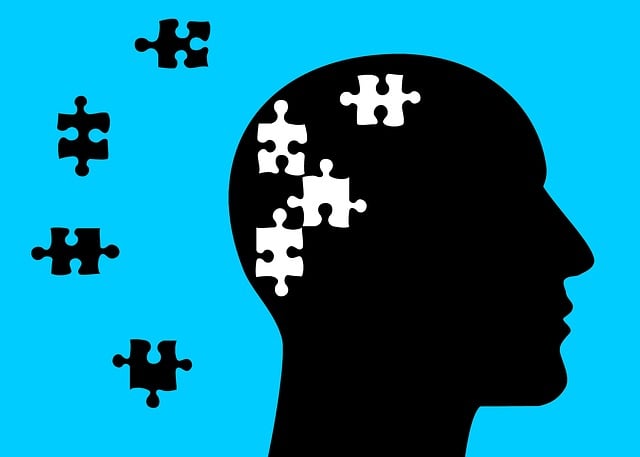Trauma, a complex psychological response to distressing events, impacts individuals' overall well-being. Superior therapy for therapists-clinicians integrates advanced techniques like conflict resolution and CBT to help clients process traumatic memories and build resilience. In today's digital era, with heightened mental health awareness, evidence-based practices like EMDR enable tailored support for specific needs. Creating safe, non-judgmental environments and fostering trust is key to effective trauma support. Continuous training and integrated programs focusing on cultural sensitivity and wellness coaching enhance therapist-client relationships and promote successful therapy outcomes.
Trauma support services are crucial for individuals navigating the aftermath of traumatic events. This article delves into essential aspects of trauma care, including understanding its profound impact on mental health. We explore the pivotal role of therapists-clinicians in providing effective treatment using superior therapy approaches. Key topics cover creating safe, therapeutic environments and emphasizing continuous training for professionals to ensure optimal patient outcomes. By focusing on these strategies, we aim to enhance support and promote healing for those affected by trauma.
- Understanding Trauma and Its Impact
- The Role of Therapists-Clinicians in Trauma Support
- Superior Therapy Approaches for Effective Treatment
- Creating a Safe and Therapeutic Environment
- Continuous Training and Support for Professionals
Understanding Trauma and Its Impact

Trauma is a complex psychological response to distressing events or experiences. It can manifest in various ways, affecting an individual’s emotional, cognitive, and physiological well-being. Understanding trauma goes beyond recognizing its immediate effects; it involves comprehending how past traumatic events can shape a person’s present and future interactions with their environment. This includes recognizing that trauma isn’t just about what happened but also the lasting impact on one’s sense of safety and trust in relationships.
Superior therapy for therapists-clinicians often involves integrating advanced techniques, such as conflict resolution strategies, to help clients process and overcome traumatic memories. Mental wellness coaching programs development can provide individuals with tools like journaling exercises to track progress and enhance self-awareness. By combining these approaches, therapists can offer comprehensive care, empowering clients to reclaim their mental health and live fulfilling lives. Additionally, the guidance provided in mental wellness journaling exercises helps individuals gain valuable insights into their emotional states, fostering better coping mechanisms and promoting overall resilience.
The Role of Therapists-Clinicians in Trauma Support

In the realm of trauma support services, therapists-clinicians play a pivotal role in helping individuals navigate and overcome their traumatic experiences. Superior therapy for therapists-clinicians involves not just technical expertise but also empathy, patience, and a deep understanding of the complex nature of trauma. These professionals are the backbone of mental wellness coaching programs, employing various evidence-based approaches to facilitate healing. Through meticulous assessment and tailored interventions, they create safe spaces that encourage clients to process their traumas, fostering resilience building and confidence boosting along the way.
The development of resilience is a key focus for therapists-clinicians, who employ therapeutic techniques designed to help individuals cope with and bounce back from traumatic events. By integrating resilience-building strategies into therapy sessions, they empower clients to confront their past experiences head-on, promote mental wellness, and cultivate a sense of strength and agency. This holistic approach ensures that trauma survivors not only recover but also emerge as resilient individuals equipped to face future challenges.
Superior Therapy Approaches for Effective Treatment

In today’s world, where mental health awareness is on the rise, therapists and clinicians play a pivotal role in providing superior therapy approaches for effective trauma support. One such game-changer is cognitive behavioural therapy (CBT), which helps individuals identify and challenge negative thought patterns and behaviours associated with traumatic events. By focusing on emotional regulation techniques, CBT empowers clients to manage their responses to distressing memories or triggers, fostering a sense of control and resilience.
Additionally, evidence-based practices like eye movement desensitization and reprocessing (EMDR) have proven effective in treating complex trauma. This innovative therapy facilitates the processing of traumatic memories, reducing their intensity and impact on an individual’s life. With these superior therapy techniques at their disposal, therapists can offer tailored support that addresses specific needs, ultimately contributing to depression prevention and promoting overall mental health recovery.
Creating a Safe and Therapeutic Environment

Creating a safe and therapeutic environment is paramount when offering trauma support services. This involves cultivating a space where individuals feel understood, respected, and free from judgment. Superior therapy for therapists-clinicians requires meticulous attention to establishing trust and fostering open communication. By creating a warm and non-threatening atmosphere, clients are more likely to engage in the healing process, sharing their experiences and working through traumatic memories.
The environment plays a crucial role in mental wellness management, especially when addressing complex issues such as trauma. Ensuring confidentiality, maintaining consistent boundaries, and demonstrating empathy are essential components of effective trauma support services. Through these practices, therapists-clinicians can provide superior therapy, enabling clients to regain a sense of control, process their experiences, and work towards lasting recovery and improved mood management.
Continuous Training and Support for Professionals

Continuous training and support are essential components for maintaining superior therapy practices among therapists and clinicians. Regular workshops, webinars, and peer-led discussions help professionals stay updated with the latest research, techniques, and best practices in trauma support. This ongoing development ensures that they can provide effective care tailored to diverse client needs, including those from different cultural backgrounds.
Integrating Mental Health Awareness, Cultural Sensitivity in Mental Healthcare Practice, and Mental Wellness Coaching Programs into training curricula empowers therapists to create inclusive environments. Such programs foster empathy, improve communication skills, and enhance the ability to offer sensitive support. This, in turn, leads to more successful therapy outcomes and strengthens the relationship between therapist and client, ultimately promoting mental wellness for all involved.
Trauma support services play a vital role in helping individuals recover from the profound effects of traumatic experiences. By understanding trauma, employing evidence-based superior therapy approaches, and fostering safe therapeutic environments, therapists-clinicians can significantly enhance their clients’ healing journeys. Continuous training and professional development ensure that these practitioners remain equipped to offer effective treatment, ultimately contributing to a more resilient and supportive community.














